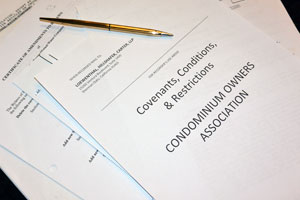A growing concern within Associations is the issue of potential Board conflicts. Several issues must be evaluated including the board members volunteer status; board members personal or financial interest in a contract; receipt of gifts from vendors and litigation involving a board member against their association.
The volunteer status of a board member is essential…
Read more


